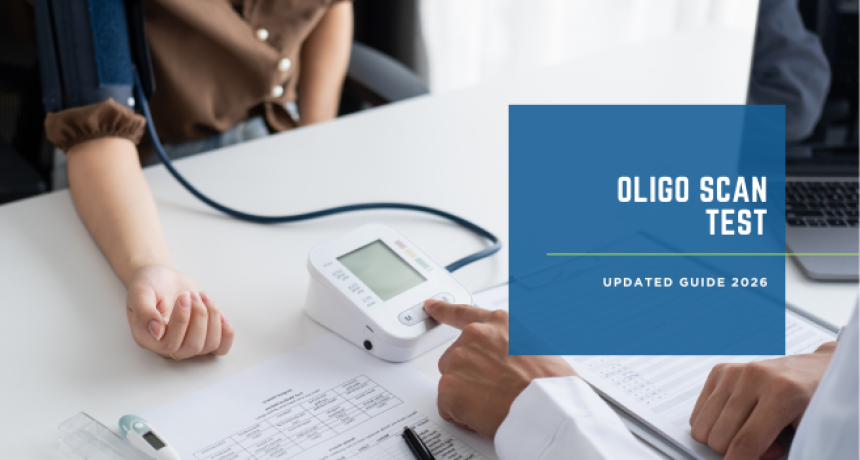Teeth Pain: A Potential Heart Attack Warning Sign
2025-03-16 A heart attack is often considered a silent killer, striking suddenly and sometimes without warning. While we commonly associate heart attack symptoms with chest pain, shortness of breath, and arm discomfort, emerging research suggests that your mouth could reveal early warning signs of heart disease. But what exactly is this oral red flag, and how can it help in early detection? Let’s dive into the connection between oral health and heart health, symptoms to watch out for, and preventive steps you can take. Yes! Studies have found that gum disease (periodontitis) and certain oral symptoms could be early indicators of an increased risk of heart disease and heart attacks. One of the biggest oral red flags for heart disease is gum inflammation, which may include: Bacteria from infected gums can enter the bloodstream, triggering inflammation in blood vessels, which may lead to artery blockages. This chronic inflammation is a major risk factor for heart disease, high blood pressure, and heart attacks. 🔹 Fact: People with severe gum disease are 2–3 times more likely to have a heart attack than those with healthy gums. Boost your longevity with regular health check-ups! Other Oral Signs That May Indicate Heart Issues Apart from gum disease, here are other mouth-related symptoms linked to heart attack risk: 🔹 Jaw Pain or Tightness – A common but overlooked symptom of heart attacks, especially in women. Many people don’t realize that poor oral health can directly affect the heart and arteries. 1️⃣ Bacteria from infected gums enter the bloodstream. 📌 Fact: A study in the Journal of the American Heart Association found that people with chronic gum disease were at a 25% higher risk of suffering a heart attack. 🔸 People with poor oral hygiene If you regularly experience gum bleeding, inflammation, or jaw pain, it’s time to pay attention—not just for your teeth but for your heart health too! Taking care of your teeth and gums is one of the simplest ways to lower your risk of heart attack and cardiovascular disease. 3️⃣ Visit a Dentist Regularly – A check-up every 6 months can catch early signs of gum disease. 🔹 Pro Tip: Using antibacterial mouthwash can reduce harmful bacteria and protect your gums and cardiovascular system. 🚨 If you notice these warning signs, seek medical or dental care immediately: Ignoring these symptoms could increase your risk of serious heart conditions, including heart attacks and strokes. Yes. Chronic gum inflammation can increase plaque buildup in arteries, raising the risk of heart disease and heart attacks. Not always, but jaw pain, especially on the left side, could be an early symptom of a heart attack, particularly in women. Yes. Studies suggest that proper oral care and treating gum infections can lower inflammation and reduce the risk of heart complications. Leafy greens, berries, nuts, fish (rich in omega-3), and green tea help maintain healthy gums and a strong heart. At least twice a year for a check-up and cleaning. If you have gum disease or heart risk factors, visit more frequently. At Longevity And Beyond, we're committed to your well-being. Reach out to us to start your personalized path to integrative wellness.
Final Thoughts Your mouth is a window into your overall health—and it may even provide early warning signs of heart disease. If you experience gum inflammation, persistent bleeding, or jaw pain, don’t ignore it. Taking care of your oral health could protect your heart and potentially save your life. By maintaining good oral hygiene, a heart-healthy diet, and regular dental check-ups, you can lower your risk of heart attack and live a longer, healthier life. 👉 Prioritize your oral health today—your heart will thank you for it!Introduction
Can Your Mouth Predict a Heart Attack?

The Key Mouth Symptom: Gum Inflammation & Bleeding
✅ Swollen, red, or tender gums
✅ Bleeding gums, especially while brushing or flossing
✅ Persistent bad breath (halitosis)
✅ Loose teeth or receding gumsWhy Does This Happen?

🔹 Pale or Blue Lips – Indicates poor oxygen flow, a possible sign of heart disease.
🔹 Frequent Mouth Ulcers – Chronic ulcers can be linked to inflammation and cardiovascular risk.
🔹 Tooth Loss – Studies suggest that losing multiple teeth due to poor oral health may be connected to coronary artery disease (CAD).The Link Between Oral Health and Heart Disease
🧬 How Gum Disease Increases Heart Attack Risk
2️⃣ They trigger inflammation in blood vessels, causing artery damage.
3️⃣ Plaque buildup (atherosclerosis) increases, narrowing arteries.
4️⃣ This raises the risk of high blood pressure, blood clots, and heart attacks.Who is at Risk?
🔸 Those with a history of gum disease
🔸 Smokers and diabetics (both increase oral and heart risks)
🔸 Individuals with high cholesterol or high blood pressure
🔸 People who ignore early gum symptomsUnlock the secrets of your DNA with advanced genome testing!
How to Reduce Your Risk of Heart Disease Through Oral Care
✅ 5 Essential Oral Health Tips for a Healthy Heart
1️⃣ Brush Twice Daily – Use fluoride toothpaste to keep gums and teeth healthy.
2️⃣ Floss Daily – Removes plaque that can cause bacterial infections.
4️⃣ Quit Smoking – Smoking worsens gum disease and narrows arteries.
5️⃣ Eat Heart-Healthy Foods – A diet rich in fiber, antioxidants, and healthy fats benefits both your teeth and heart.
When to See a Doctor or Dentist?
✔ Frequent gum bleeding or swelling
✔ Persistent bad breath despite brushing
✔ Jaw pain, especially alongside chest discomfort
✔ Sudden loose teeth without an injuryFAQs About Oral Health and Heart Disease
1. Can gum disease really cause a heart attack?
2. Is jaw pain always a sign of heart trouble?
3. Can treating gum disease reduce heart disease risk?
4. What foods support both oral and heart health?
5. How often should I visit a dentist for heart health protection?
.png)















